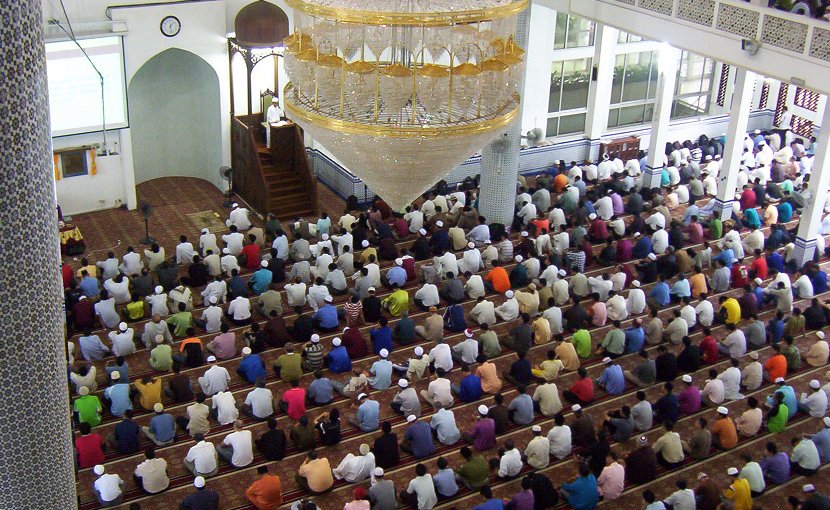Play all audios:
When Maszlee Malik handed back Malaysia’s education port portfolio after Prime Minister Mahathir Mohamed fired him abruptly on January 2, he left behind a fifth column of Islamist activists
embedded in the top echelons of the ministry and public universities, sources have told Asia Sentinel. According to a former vice-chancellor who pointed out a list of at least 26 newly
appointed vice chancellors and deputy vice chancellors, these appointments were not made on merit but rather on the basis of loyalty to Maszlee and Salafi preacher and Perlis Mufti – Muslim
legal expert – Mohd Asri Zainul Abidin. The Salafi movement is a revivalist crusade within Sunni Islam that developed in Egypt in the late 19th century as a response to Western European
imperialism. If Maszlee had more time as minister of education, according to the source, both the ministry and almost every top position in Malaysia’s public universities would have been
filled with members of an Islamic NGO dedicated to enhancing Islamic teachings and practices in daily life. The NGO is Pertubuhan Ikram Malaysia, which is committed promoting the interests
of Islam through all aspects of society. Other organizations affiliated with Ikram are said to assist in this cause. Although Ikram has a respectable reputation within the Malaysian
community, the leadership has been infiltrated by Salafi sympathizers pushing fringe ideas of Islam. Ikram strongly opposes Shia Islam, seeing it as deviant. The NGO was also strongly
opposed to the participation of two Israeli para-athletes in an international swimming competition last year in Sarawak, forcing the competition to be moved to another country, and objected
strongly to the staging of a play, “Sex in Georgetown City” last year at the Performing Arts Center in Penang. As a result, according to several sources in the country’s public higher
education system, the ministry became insular in its outlook to education and dedicated to implementing an agenda that would hinder any diverse outlook from educational perspectives. A
recent example was a Universiti Malaysia Perlis Vice Chancellor, Dr Ahmad Badlishah, who said there was nothing wrong with controversial exam questions that caused outrage and calls for his
resignation across the nation. The multiple-choice question in the university’s Ethnic Relations paper claimed Zakir Naik, a controversial Islamic preacher and fugitive from India on charges
of money laundering, is an Islamic icon and spreading true Islam. Klang Federal MP Charles Santiago complained that other questions were offensive to the Indian community, including one
that reportedly read: “These people are dark-skinned people and they are found in Asian countries such as Malaysia and Indonesia: What nation is this?” The multiple-choice answers were given
as “1) Negroid; 2) Red Indian; 3) Indians; 4) Bushman.” The exposure of these exam questions led to a widespread belief that public universities in Malaysia had become platforms for
propaganda and indoctrination, giving the young biased ideas about Islam and society. Members of Ikram that Maszlee appointed to Malaysian public universities in his short time as minister
and the dates of their appointment are: * University Malaysia Sabah: Vice Chancellor Taufiq Yap Hin, Malaysian Chinese Muslim Association president, July 23, 2019 * University Tun Hussein
Onn: Deputy Vice Chancellor Student Affairs AP Afandi Ahmad, Aug. 15, 2019 * University Sultan Zainal Abidin: Vice Chancellor Hassan Basri Mat Dahan, Feb. 7, 2019 * Deputy Vice Chancellor
Academic Affairs Kamal Shukri Mat, Feb. 12, 2019 * Deputy Vice Chancellor Research and Innovation Mohd Afandi Salleh, Dec. 1, 2018 * University Science Malaysia: * Deputy Vice Chancellor
Research and Innovation Faisal Rofiq Mohd Abdikan, Oct. 4, 2019 * Deputy Vice Chancellor Academic Affairs, Aldrin Abdullah, March 1, 2019 * Universiti Teknology MARA: Vice Chancellor
Azraii Kassim, Feb. 15, 2019 * Deputy Vice Chancellor Academic Affairs Azizan Abdullah, March 6, 2019, * Deputy Vice Chancellor Research and Innovation, Nazir Suratman 15 November 2018 *
National University Malaysia: Vice Chancellor, Mohd Hamdi Abd Shukor, Jan. 1, 2019 * Deputy Vice Chancellor Research and Innovation, Mohd Ekhwan Toriman, Aug. 18, 2018 * Deputy Vice
Chancellor Community Industry Relations, Imran Ho Abdullah Sept. 5, 2018 * University Technology Malaysia: Vice Chancellor Wahid Omar Aug. 31, 2018 * Deputy Vice Chancellor Academic Affairs
Zainudin Abd Manan, Mar. 18, 2019, * Deputy Vice Chancellor Development, Azlan Abdul Rahman, Feb. 15, 2019 * University Malaysia Perlis: Vice Chancellor R. Badlishah, May 16, 2019 *
University Malaysia Kelantan: Deputy Vice Chancellor Research and Innovation, Arham Abdullah, June 15 * Deputy Vice Chancellor Academic Affairs, Mohd Rafi Yaacob, Jun 20, 2018 * University
Malaysia Pahang Vice Chancellor Wan Azhar Wan Yusof, May 14, 2019 * Deputy Vice Chancellor Research, Kamal Zuhri Apr 8, 2019 * Innovation University Technical Malacca * Deputy Vice
Chancellor Research and Innovation Zulkifli Ibrahim, Nov. 15, 2018 * Deputy Vice Chancellor Academic Affairs Nurulfajar Abd Manap, Oct. 23, 2018 * University Science Islam Malaysia: Vice
Chancellor Mohamed Ridza Wahiddin, Sept. 12, 2019 * Deputy Vice Chancellor Student Affairs Abd Rahim Abd Rahman, Jun 25, 2018 * International Islamic University of Malaysia: Deputy Vice
Chancellor Academic Affairs Zulkifli Hassan, Oct. 3, 2018 Maszlee also appointed Mohd Saleh Jaafar deputy director general of Higher Education (Private Institution) and Gauth Jasmon as
chairman of the Universiti Putra Malaysia Board of Directors. All are described as loyal to the Ikram leadership, which also appears to be strongly aligned with the Pakatan Harapan
government. Consequently, decisions on matters such as Putrajaya’s failure to sign the United Nations International Convention on the Elimination of all Forms of Racial Discrimination
(ICERD) in 2018, should be seen in the light that members of Ikram are spread across all aspects of government. The concern is the reform of the Malaysian education system, not its
Islamification. To ensure reform, the sources say, Maszlee’s appointments must be re-vetted as to suitability to pursue reform within their respective institutions. Otherwise this Salafist
legacy will remain embedded within Malaysian public universities. _Originally published in the Asia Sentinel_

